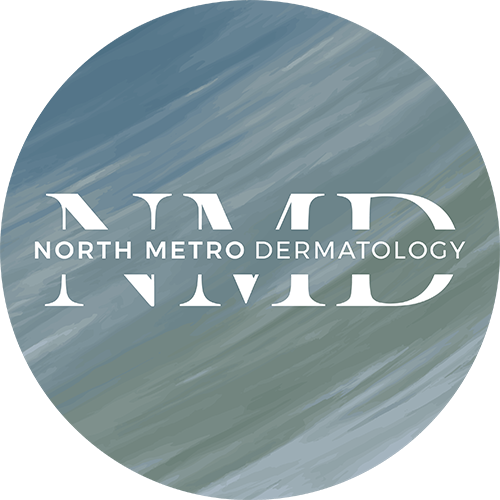Hair loss is often one of the most common and frustrating concerns for patients. It can occur for a variety of reasons, and therefore, treatment options are very different depending on the type of hair loss. While it is normal to lose up to 100 hairs per day, if you feel you have an increase in hair loss, your hair is thinning, or you have patches of hair missing, you should be evaluated to determine what type of hair loss you have and what treatment options are available to you.
ANDROGENETIC ALOPECIA – This is a common type of hair loss, also known as female or male pattern hair loss, which occurs with increased age, genetics, and hormonal changes. It is characterized by progressive thinning of hair in the front and crown of the scalp.
ALOPECIA AREATA – This condition causes sudden, circular patches of hair loss to varying degrees. This may be related to genetics and can be autoimmune in nature, though the absolute cause is unknown. This affects both genders and all races equally and typically starts around age 30.
TELOGEN EFFLUVIUM – This is a premature, intense shedding of hair caused by an abnormal shift in the hair growth cycle. There are a wide variety of causes that include but are not limited to: hormonal shifts (childbirth), major surgery, serious illness, malnutrition, drugs, or emotional distress. The shedding typically resolves within 6-12 months of stopping the inciting factor.
TINEA CAPITIS – This is a fungal infection of the scalp that causes circular patches of hair loss with a visible scale. The hair will resume normal growth once the infection is cleared.
SCARRING / CICATRICIAL ALOPECIA – This includes a variety of different conditions of the scalp that can cause inflammation, scarring, and sometimes permanent hair loss.
NON-PRESCRIPTION TREATMENTS: Depending on the type of hair loss, we may recommend you start on a series of vitamins, over-the-counter medications (including our NMD Activating Hair Complex), supplements, or stress reduction techniques.
PRESCRIPTION TREATMENTS: Topical and/or oral prescription therapy may be recommended depending on the type of hair loss.
INTRALESIONAL INJECTIONS: We frequently treat alopecia areata with intralesional injections of steroid directly into the affected areas. This can take several weeks before improvement is noted but can be very effective.
SCALP EXFOLIATION: A healthy scalp can be the foundation for healthy hair. Since a buildup of dead skin and clogged follicles contribute to some forms of hair loss, exfoliation of the scalp can play a key role in achieving healthy, new hair growth. The scalp exfoliating treatment can be arranged with our esthetician. Treatment is not covered by insurance.
